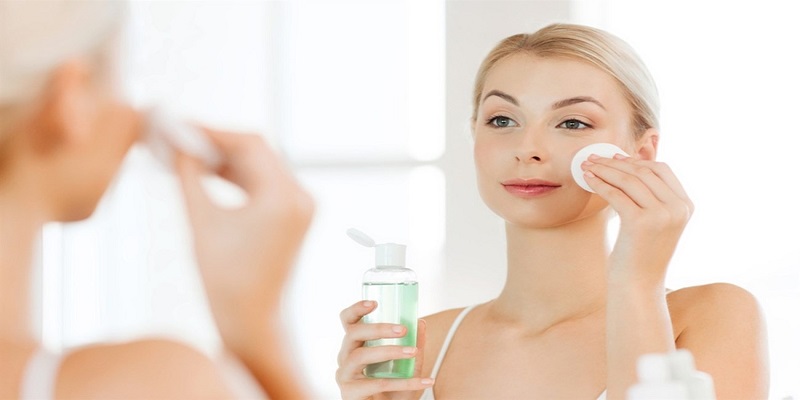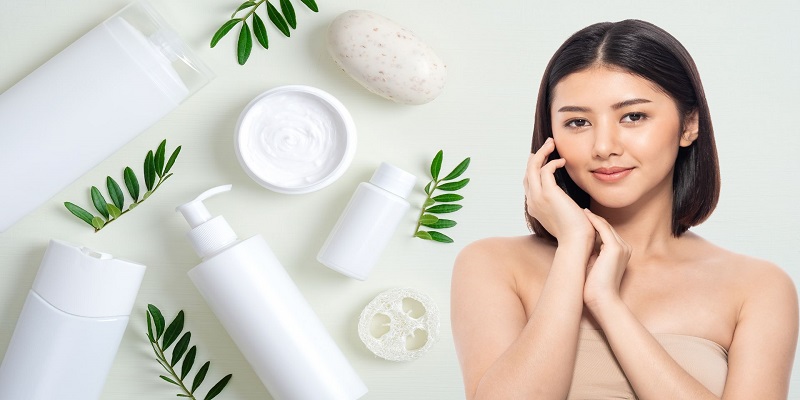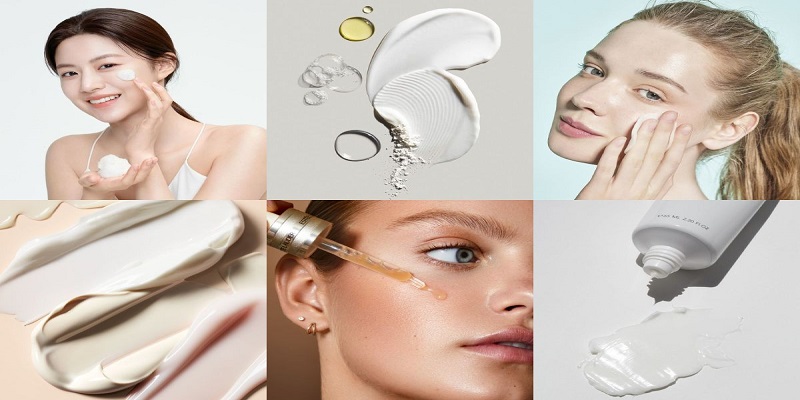Skincare is a fundamental aspect of personal hygiene and self-care. It involves practices designed to maintain the health and appearance of the skin, which is the body’s largest organ. Skin plays an essential role in protecting the body from external factors like pollution, bacteria, and harmful UV rays, and it is crucial to take proper care of it. With the rising popularity of beauty and wellness trends, skincare has become a focal point for many people seeking to improve not just their appearance, but also their overall well-being.
While skincare routines differ from person to person, the main goal is to keep the skin healthy, nourished, and protected. The right skincare regimen can help to prevent or address issues such as acne, dryness, fine lines, and hyperpigmentation, contributing to smoother, clearer, and more radiant skin. Understanding the importance of skincare, the products involved, and how to care for your skin according to your individual needs can make a significant difference in achieving glowing, youthful skin.

Why Skincare Matters
Skincare is vital for several reasons. The skin serves as a barrier that protects the internal organs from harmful elements in the environment, including bacteria, viruses, and pollutants. It also helps regulate body temperature and prevents the loss of essential nutrients and moisture. When the skin is properly cared for, it functions efficiently, maintaining its protective role and overall health. However, neglecting skincare can lead to a variety of skin issues, such as irritation, infections, premature aging, and even skin cancer.
One of the primary reasons for maintaining a skincare routine is to keep the skin hydrated. Moisture is essential for the skin’s elasticity and firmness, which helps prevent the development of fine lines and wrinkles. In addition to hydration, the skin needs protection from external factors such as ultraviolet (UV) radiation. Prolonged sun exposure without adequate protection can lead to sunburn, premature aging, and even skin cancer. Sunscreen is a crucial part of any skincare routine to shield the skin from harmful UV rays.
Another benefit of skincare is the ability to address specific skin concerns. Whether you’re struggling with acne, hyperpigmentation, or dry patches, there are skincare products available to target these issues. Proper care helps minimize these concerns over time, resulting in healthier and more even skin.
Essential Steps in a Skincare Routine
A skincare routine typically consists of several steps, and the order in which products are applied can make a significant difference in their effectiveness. While skincare routines may vary depending on skin type, climate, and individual needs, the following basic steps are typically included:
- Cleansing: The first step in any skincare routine is cleansing, which helps remove dirt, oil, makeup, and other impurities from the skin’s surface. Cleansing is essential because it prevents clogged pores and promotes clearer skin. Depending on your skin type, you might opt for a gel cleanser, cream cleanser, or a gentle foaming wash. It’s important to choose a cleanser that suits your skin’s needs—whether it’s hydrating for dry skin or oil-controlling for acne-prone skin.
- Toning: After cleansing, toning helps to restore the skin’s natural pH balance, which can be disrupted by cleansing. Toners also help to tighten pores and provide an additional layer of hydration. Some toners contain exfoliating ingredients like alpha hydroxy acids (AHAs) or beta hydroxy acids (BHAs) that remove dead skin cells and promote cell turnover, revealing smoother, brighter skin.
- Serums and Treatments: Serums are lightweight formulations packed with active ingredients designed to address specific skin concerns. For example, a vitamin C serum can brighten dull skin and fight free radicals, while a hyaluronic acid serum can deeply hydrate the skin. Depending on your skin’s needs, you can use serums that target acne, aging, or pigmentation.
- Moisturizing: Moisturizing is crucial to keep the skin hydrated and plump. Moisturizers help lock in moisture and prevent dryness, leaving the skin feeling smooth and soft. For people with dry skin, richer creams may be necessary, while those with oily skin may opt for lightweight gel moisturizers. Regardless of your skin type, moisturizing is an essential step in your routine.
- Sunscreen: Sunscreen is perhaps the most important step in any skincare regimen. Daily use of sunscreen protects the skin from the harmful effects of UV radiation, which can cause sunburn, dark spots, and premature aging. It’s recommended to use a broad-spectrum sunscreen with SPF 30 or higher every day, even when it’s cloudy or indoors, as UV rays can still penetrate windows.
Choosing the Right Skincare Products for Your Skin Type
Understanding your skin type is essential when choosing the right skincare products. Different skin types require different approaches to care. The main skin types are:
- Oily Skin: People with oily skin tend to have excess sebum production, which can lead to a shiny complexion and clogged pores. For oily skin, it’s important to use non-comedogenic products that won’t clog pores, along with lightweight moisturizers and oil-free cleansers. Gel-based products and toners with salicylic acid are ideal for controlling excess oil and preventing breakouts.
- Dry Skin: Dry skin lacks moisture, often leading to tightness, flakiness, and irritation. Those with dry skin should focus on hydrating products, such as creams, oils, and serums containing hyaluronic acid, glycerin, or ceramides. Avoiding harsh exfoliants and opting for gentle, creamy cleansers can also help prevent further moisture loss.
- Combination Skin: Combination skin is characterized by areas that are oily (often the T-zone) and areas that are dry or normal (such as the cheeks). People with combination skin may need to use different products for different areas of the face. A gentle cleanser, a lightweight moisturizer, and a combination of mattifying and hydrating products can balance this skin type.
- Sensitive Skin: Sensitive skin is prone to irritation, redness, and reactions to certain ingredients. For sensitive skin, it’s essential to choose fragrance-free, hypoallergenic products that are gentle and soothing. Avoiding products with harsh chemicals or alcohol is key to preventing irritation.
- Normal Skin: Normal skin has a balanced level of oil and moisture and tends to have fewer issues with acne, dryness, or sensitivity. While normal skin requires less maintenance than other skin types, it’s still important to maintain a good skincare routine with a gentle cleanser, moisturizer, and sunscreen.

Skincare for Different Concerns
Skincare routines can also be customized to address specific concerns. People dealing with acne, for example, might focus on products containing salicylic acid, benzoyl peroxide, or retinoids to control breakouts and reduce inflammation. For anti-aging, ingredients like retinol, peptides, and antioxidants (such as vitamin C) can help reduce fine lines, wrinkles, and uneven skin tone. Those with pigmentation issues may benefit from products containing niacinamide, licorice extract, or alpha arbutin, which help brighten and even out the skin.
The Role of Diet and Lifestyle in Skincare
In addition to using the right skincare products, diet and lifestyle play a crucial role in maintaining healthy skin. A balanced diet rich in fruits, vegetables, lean proteins, and healthy fats can provide essential nutrients that support skin health. Drinking plenty of water helps keep the skin hydrated from the inside out, while avoiding excessive sugar, alcohol, and processed foods can prevent inflammation and breakouts.
Regular exercise also boosts circulation, promoting a healthy, glowing complexion, while stress management techniques such as meditation or yoga can help reduce skin flare-ups related to stress. Getting enough sleep is equally important, as it allows the skin to repair itself and regenerate overnight.
Conclusion
Skincare is more than just a routine; it is a practice that nourishes the body’s largest organ and promotes both physical and emotional well-being. A well-rounded skincare regimen that includes cleansing, toning, moisturizing, and protecting the skin from the sun can help individuals maintain clear, healthy, and youthful-looking skin. By understanding your skin type, addressing specific concerns, and living a healthy lifestyle, you can enjoy the long-term benefits of glowing, radiant skin.

